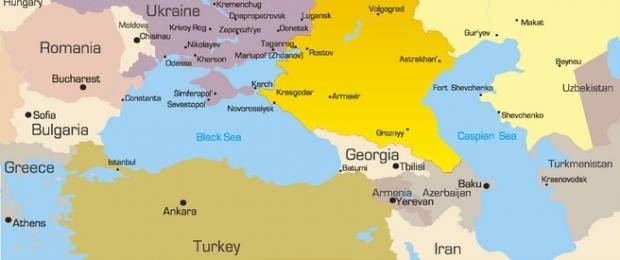
Can the west help prevent an all-out war between Russia and Georgia?
This week, Georgia made a bold gamble: it moved forces into South Ossetia; a province of Georgia that broke free in the early 1990s, in an attempt to re-assert its authority over parts or all of it. The Georgian president Mikhail Saakashvili ordered total mobilisation, and the Tbilisi government says Georgia has already occupied large parts of the provincial capital, Tskhinvali. If Saakashvili's gamble pays off, Georgia will not only have regained a part of its territory, but it will also have dramatically reduced Russia's influence in Georgia. The risks are commensurate with the potential gains: if things go wrong, Georgia could find itself in a full war with Russia.
Saakashvili probably felt that he had no alternatives to the offensive. He came to power with two objectives: to re-unify Georgia, and to bring the country into Nato. But in recent months, he has seen both those goals slip away. Russia, angry at Tbilisi's attempts to join Nato, has stepped up its pressure on Georgia. In April, Moscow passed a law authorising direct contacts with South Ossetia (and Abhkazia, another breakaway province) – this made the Georgians worry that outright recognition or annexation will come next. In May, Russia sent troops to bolster the peacekeeping contingent it maintains in both Abkhazia and South Ossetia. And Russian planes entered Georgia several times, occasionally firing rockets at Georgian targets.
Seen from Tbilisi, if Georgia did not act militarily, Russia would eventually make the reintegration of South Ossetia impossible. But Georgia is not blameless for current unrest. Georgian forces have bombarded the self-declared capital, Tskhinvali, on at least two occasions this summer. That is hardly an inducement for the South Ossetians to re-integrate with Georgia.
However, Russian reaction to events in South Ossetia, and particularly its armed incursions, raised a new, more serious worry. With each uncontested Russian military move against Tbilisi, the sovereignty of Georgia itself was being eroded. It could never join Nato or the EU if Russian forces regularly entered the country. So a relatively limited conflict over two separatist territories was turning into a larger challenge to Georgia's independence, and to its right to choose a pro-western course. When Georgian forces moved on August 7, it was partly to reclaim South Ossetia but also to deny Russia the excuse for undermining Georgia's sovereignty.
This all leaves the west in a quandary. Nato in particular will wonder if it inadvertently helped bring about the current crisis.
At the April summit in Bucharest, Nato denied Georgia a so-called membership action plan (a half-way step to membership). Germany and France led the "no" camp, on the grounds that a move towards membership for Georgia would alienate the incoming Russian president Dmitry Medvedev. But the message that Moscow took away from the summit is that pressure works, so it piled on more of it on Georgia. While it has discreetly supported Georgia's breakaway provinces for years (for example, by giving nearly all locals Russian passports), its most brazen moves – like the deployment of railways troops to Abhkazia – came only after the summit.
The message that Tbilisi took away from the summit is that Europe will give in to Russian pressure. So it moved to not only re-take South Ossetia, but also to reduce Russia's ability to destabilise Georgia and thwart its bid for Nato membership.
The west is left with precious few options. Neither the EU nor Nato wants to risk conflict with Russia so Georgia is unlikely to receive any military assistance from them. But both Tbilisi and Moscow will be sensitive to western reactions, so the EU and Nato should have some influence over the course of the events. They must strive to prevent Russia's full entry into what is, morally and legally, an internal Georgian affair. Russian troops are by all signs already involved; tanks are said to be entering South Ossetia and the Georgians say they shot down Russian aircraft. But it may not be too late to prevent an all-out Russian-Georgian war.
The EU and Nato should make clear to Russia that unrest in South Ossetia is not an excuse for invading Georgia. One possible approach is to seize on Moscow's desire for a new collective security treaty for Europe, which president Dmitry Medvedev proposed in July. Europe should tell Moscow that if it wants the treaty to be taken seriously, Moscow must show that it, too, can be a responsible actor. And in case of South Ossetia, that means pulling back from the war.
